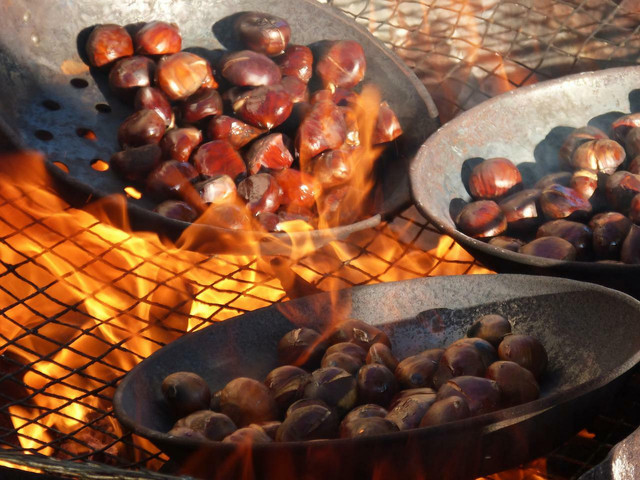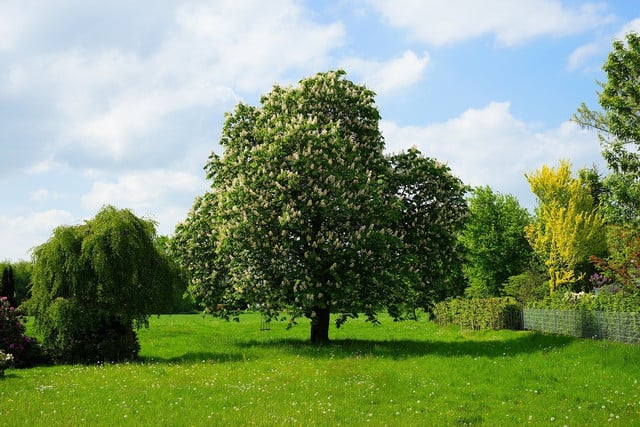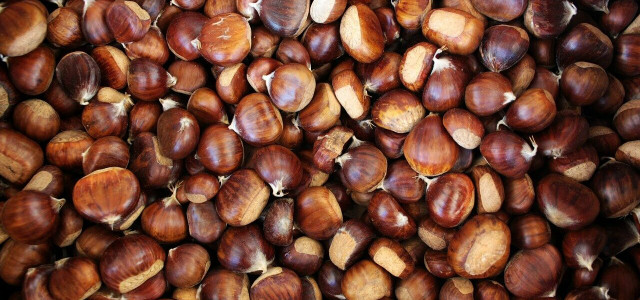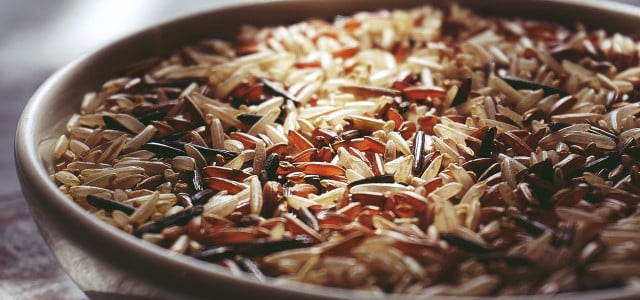Chestnuts are rich in nutrients including vitamins and minerals, antioxidants and dietary fibres. We’ll tell you the health benefits of chestnuts as well as their environmental impact.
Chesnuts grow on trees in the genus Castanea, and many species in this group can live for 500 years or more. There are four main species of chestnut tree: the Chinese chestnut, the Japanese chestnut, the European chestnut, and the American chestnut. The European chestnut, Castanea sativa, is the most common of the chestnut trees and provides the majority of chestnuts sold in grocery stores across the US today. Chestnuts are typically harvested mid-September through November, and they are a favorite food around the holiday season.
How to Prepare Chestnuts so They’re Good for You

(Foto: CC0 / Pixabay / makamuki0)
Chestnuts are rich in nutrients and there are lots of positive health effects in adding them to your diet. Some of these health benefits include:
- Antioxidants: Chestnuts are packed full of antioxidants such as Vitamin C and gallic acid, which are compounds that help protect your cells against damage from unstable molecules called free radicals, which can cause cancer. Gallic acid is known to also protect against cardiovascular disease.
- Fibre: Chestnuts are also good for you as they are high in fibre, which acts as a source of nourishment for the healthy bacteria in your gut. The gut bacteria ferment fibre, which produces various compounds including short-chain fatty acids, which are known to aid gut health, reduce inflammation, and improve metabolic and cardiovascular health.
- Potential anti-cancer properties: Test tube studies show that extracts from chestnuts suppressed the growth and spread of various types of cancer cells, including prostate, breast, and colon cancers.
- Supports healthy blood sugar levels: Chestnuts are low GI as they predominantly contain complex carbohydrates, which your body digests slowly for a stable energy source.
One of the most popular methods to prepare chestnuts is to roast them. Roasted chestnuts are higher in vitamins and minerals, as well as carbohydrates, fibre, sugar and protein compared to boiled chestnuts, which mainly contain water.
You can eat roasted chestnuts warm from the oven, tossed with olive oil and salt for a savoury snack. Boiled chestnuts are great for snacking on, or adding to a recipe such as a pasta dish, a low-carb salad or a healthy vegan poke bowl. By simmering and soaking roasted or boiled chestnuts in sugar syrup or a vegan honey alternative like dandelion honey over a few days, you can even make candied chestnuts. Another option is to make chestnut puree: just blend boiled chestnuts with enough water or vegan cream to make a smooth paste.
Chestnuts are also safe for most people to eat raw. However, people with liver disease or kidney problems should avoid eating raw chestnuts as they do contain tannic acid, which can cause stomach irritation, nausea, or liver damage.
Environmental Impacts of Chestnut Production?



(Foto: CC0 / Pixabay / Kapa65)
Chestnuts are good for you, but are they good for the planet? US chestnut production is low, and it accounts for less than one percent of total world production, according to the USDA. Most chestnuts in grocery stores come from Korea, China and Italy, so they have high ‘food miles’. Look out for chestnuts that are grown locally or domestically in order to reduce the food miles. Chestnut production is relatively sustainable, with the most likely source of pollution coming from herbicides used during the establishment of chestnut orchards. You can avoid this by buying certified organic chestnuts, where alternatives methods are used to ensure the healthy growth of the chestnuts. Some parties encourage growing more chestnut trees in the US due to the amount of carbon dioxide that they absorb, which helps to protect against climate change.
Read more:
- Is Spicy Food Good For You? Health Benefits and the Right Amount
- Is Chai Tea Good For You? What You Need to Know
- Can You Eat Zucchini Raw? Benefits & Downsides of the Uncooked Vegetable
Important Information regarding Health-related Topics.
** Links to retailers marked with ** or underlined orange are partially partner links: If you buy here, you actively support Utopia.org, because we will receive a small part of the sales proceeds. More info.Do you like this post?







